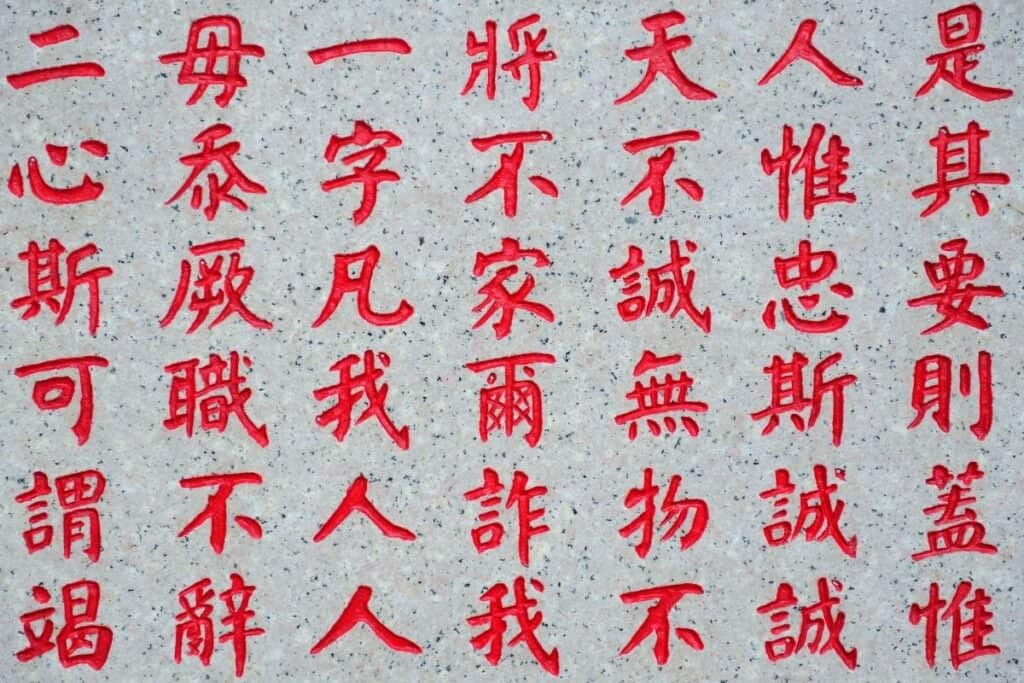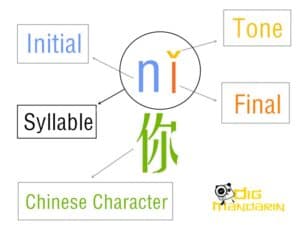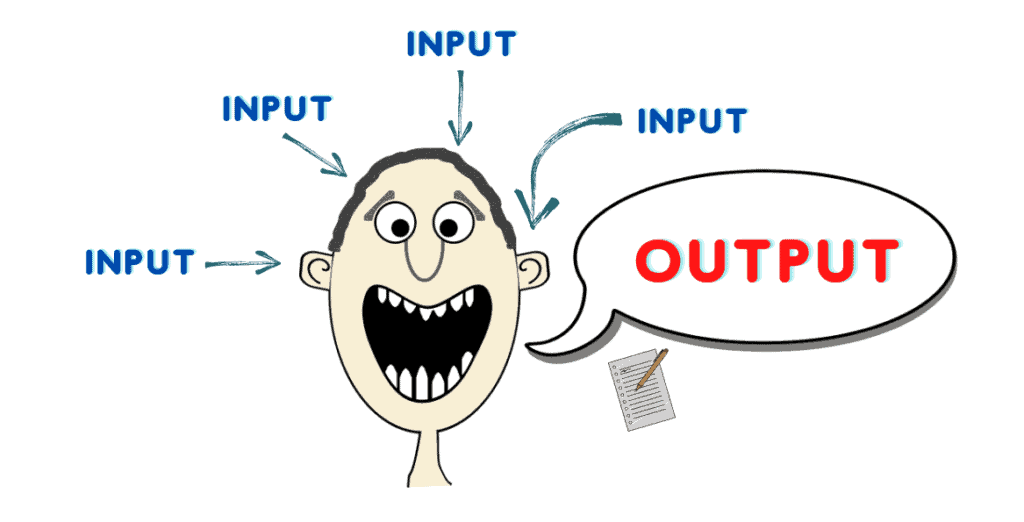
Mandarin Chinese is often talked about as being one of the most difficult languages to learn for native English speakers.
Although it’s not as impossible as many seem to think it is, there are a few aspects of the language that make it more of a challenge for some people.
When most learners complain about the difficulty of Mandarin, they usually say the following four areas are something they struggle to get to grips with.
- Tones
- Learning a large number of characters
- The writing system
- The fact it’s a monosyllabic language and objectively more difficult to hear (my personal gripe)
A common reaction to the discovery of Mandarin’s difficulties by most beginner learners is to try to circumvent them.
“I’m not going to learn to write.”
This you can just about get away with. I’d say the majority of foreign learners don’t learn how to write characters by hand. It’s a very time-intensive endeavour that brings little practical reward.
“I just won’t use tones, they’ll still understand me.”
If you disregard tones, Chinese people might understand you in short bursts of speech, but your Mandarin will probably sound like nails on a chalkboard to a native speaker.
“I won’t learn characters. I’ll just learn pinyin.”
If you want to get anywhere with Mandarin, this one is pretty much impossible.
If you learn only pinyin and don’t learn any Chinese characters, you might be able to reach a very basic conversational level. This is the most you can hope to achieve. However, you still won’t be able to read any Mandarin whatsoever. If you want to progress beyond a beginner stage of Mandarin Chinese, you have to learn the characters.
No ifs, no buts.
What If I Learn Only Pinyin?
As a beginner learner of Mandarin Chinese, you’re likely to see a lot of pinyin. Pinyin is very helpful for learning the necessary sounds and pronunciation of words.
Mandarin Chinese isn’t a phonetic language – it’s pictographic. So, we need something that tells us how to say the characters.
That’s where pinyin comes in.

Pretty much all beginner learning material for Mandarin Chinese will have a heavy emphasis on pinyin. The pinyin is then gradually phased out as you move into an intermediate level, and presumably, learn more characters.
This is the first of many reasons why not learning characters can limit your progress in the language.
The Tone and Context Dilemma
One thing I’ve always found difficult about Mandarin is the similarity of sounds.
In English, the word ‘window’ is easily distinguishable from most other words. Even if you say it with a weird accent, it still sounds like ‘window’.
‘Window’ in Mandarin is ‘窗’ (pronounced chuāng).
Do you know what other words are pronounced ‘chuang’ in Mandarin Chinese?
| English | Chinese | Pinyin |
| bed | 床 | chuáng |
| rush, dash, charge | 闯 | chuǎng |
| to start, to achieve | 创 | chuàng |
There are a bajillion other words in Mandarin pronounced ‘chuang’, and one way of differentiating them is by their tone.
But what if we start to learn more words that have the same pronunciation, and the same tone?
| sore, skin ulcer | 疮 | chuāng |
| wound | 创 | chuāng |
| hit, strike, beat (sth.) | 㧿 | chuāng |
The only way we can now differentiate between the above words is through:
- Listening in context – this comes with practice and progress in Mandarin (something you can’t do if you don’t learn characters).
- Knowing the characters – and you aren’t willing to learn these.
Are you starting to see the problem of ignoring characters?
I Only Want to Learn to Speak Mandarin, I Don’t Want to Read!
OK, I understand.
Most people learn a language with the ultimate goal of being able to communicate in their target language. I personally think it’s the best thing about learning Mandarin Chinese. But to be able to have a decent conversation, you have to have already acquired a certain amount of language beforehand.
You can’t acquire an adequate amount of Mandarin Chinese without learning Chinese characters.
Too many language learners think the best way to learn a language is through conversation. I see this advice given to beginners all the time.
‘Speak more, speak all the time, speak to everyone!’
Idiots
So, listening to someone talk in your target language while you stare at them ‘picking it up’ is a good idea? This isn’t just terrible advice, but it actually hurts the progress of beginners because it’s demoralising. It’s like someone who’s never kicked a ball before being told to play for Barcelona and not suck.
Do we acquire a language with our eyes and ears? Absolutely.
That means lots of listening and lots of reading.
And how do we learn to read in Mandarin Chinese?
You guessed it. Through learning characters.

OK, Fine. How Do I Learn Chinese Characters?
Thanks, I’m glad you asked.
Honestly, the good news is learning characters isn’t as hard as you think. It’s a pursuit that takes time and can feel laborious, but there are ways to make it easier and faster.
To start with, I’ve written about learning characters in more detail in the following posts:
- Learning Chinese Characters: 5 Effective Strategies
- The 5 Best Apps For Learning To Write Chinese Characters
- What are Radicals and Components in Chinese Characters?
- How to Lookup Chinese Characters you Don’t Know
- 7 Useful Tips for Improving your Chinese Handwriting
- Simplified and Traditional Chinese Characters | Which Should I Learn?
- Does Mandarin Chinese Have an Alphabet?
- How Do I Type Chinese Characters On My Phone and Computer?
- A Beginner’s Guide to Chinese Calligraphy | Tools, Styles, and Tips!
Learning Chinese Characters from Scratch
- Purchase a textbook for beginners. A lot of people rag on textbooks, usually in an effort to sell their fancy new app or video course. The fact is, some textbooks are very important for beginner learners as they cover important content in a simple, logical, and practical manner.
- Download an SRS app. SRS (spaced repetition software) is incredibly useful for learning a pictographic language such as Mandarin Chinese. It can seriously speed up the process of learning characters. There are downsides – many complain SRS apps become tedious after a while, and there’s also an issue with learning characters in context (this can be fixed by sentence mining). Still, SRS apps are used by most learners of Mandarin to great effect.
- Read. A lot. I’m aware this is difficult as a newbie. There simply aren’t as many materials avilable for those with limited knowledge of the language. However, technology has brought us some pretty awesome resources offering material at the beginner level (that won’t make you fall asleep). Check this out.
- Practice writing. As I mentioned earlier, a lot of Mandarin learners don’t bother with writing characters. However, there are benefits for those that do. You’ll be able to understand radicals and components better, you’re less likely to forget characters if you can write them, and there’s an overall therepeutic quality to caligraphy. I’m just saying, give it a try. My suggestions for good writing textbooks can be found here.
Summary
If you want to move beyond a high beginner level in spoken Mandarin Chinese, you’re going to have to learn to read characters.
Maybe you could learn to speak more of the language with only pinyin, but you’d probably put more effort into avoiding learning characters than you would if you actually learned them.
If you really hate the idea of learning Chinese characters, then I suggest learning another language.
If you’ve decided to learn Chinese characters and follow the steps above, you might be surprised how fast you learn!
Further Reading
- 100+ Mandarin Learning Resources
- The Ultimate Guide to Learning Chinese in China
- 14 Reasons You Should Learn Mandarin Chinese
- Learn Mandarin with Film | 101 Awesome Chinese and Taiwanese Movies
- 100+ Podcasts for Learning Chinese | Beginner to Advanced Material
- 101 TV Shows for Chinese Learners | Drama, Action, Comedy, and More!
- 89 Awesome Chinese Books for Learners of Mandarin Chinese
